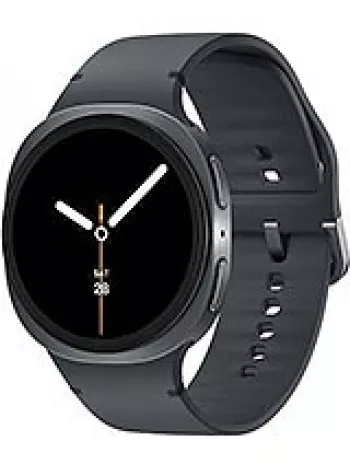
Samsung D730 Overview
The Samsung D730 was an innovative mobile device for its time, offering a variety of features that appealed to a wide range of users. Released in the first quarter of 2005, the D730 was notable for its clamshell design, compact dimensions, and the inclusion of a VGA camera, which was a significant selling point during this era.
Design and Build
The design of the Samsung D730 was sleek and modern, characterized by a compact form factor with dimensions of 95 x 48 x 24 mm and a weight of 95 grams, making it lightweight and portable. The device featured a durable build suitable for everyday use. The usage of Mini-SIM allowed for a straightforward connectivity option for users during its time.
Display
The device was equipped with a 1.8-inch TFT display capable of producing 256K colors. This display was considered excellent for its time, offering a resolution of 176 x 220 pixels that provided decent clarity for viewing images, browsing through the phone's menus, and reading text messages. Its screen-to-body ratio was approximately 22.4%, typical for the mobile phones of that period.
Camera
The Samsung D730 featured a single 1.3 MP main camera with LED flash capabilities. While this may seem minimal by today’s standards, at the time, these features were quite innovative and made taking photos on the go easy for many users. The camera also included basic video recording capabilities, which added to its appeal.
Performance and Software
Under the hood, the D730 was powered by a TI 192 MHz processor and operated on the Symbian Series 60 UI. This setup allowed for basic multitasking and running applications appropriate for that period. Symbian, being the leading operating system at the time, provided a user-friendly interface and supported a variety of applications, making it a versatile choice for users looking for more than just basic phone functionalities.
Memory and Storage
In terms of memory, the Samsung D730 came with 18MB of internal storage, which could be expanded with the help of an MMC-micro card slot. While this might seem very limited today, during its time of release, this was adequate for storing contacts, messages, and a small number of downloadable applications or ringtones.
Battery Life
Built with a removable Li-Ion 1000 mAh battery, the Samsung D730 was able to deliver up to 285 hours of standby time and up to 5 hours of talk time. This ensured users could expect the device to last through an entire day with moderate usage, aligning with the standards of mobile phones released in the mid-2000s.
Connectivity
For connectivity, the D730 offered several options typical for its time, including Bluetooth 2.0 and an infrared port, allowing users to connect to other devices with ease. However, it did not support WLAN or GPS, which were less common for mobile devices at that time. The proprietary USB allowed for data transfers between the device and a computer.
Sound and Features
The device did not include a loudspeaker, and nor did it feature a 3.5mm headphone jack, which meant users had to rely on the phone’s built-in features or proprietary accessories for audio. It supported downloadable polyphonic and MP3 ringtones which could be used for customizing incoming calls and alerts. The D730 also included a WAP 2.0/xHTML browser for basic mobile internet browsing.
Additional Features
A noteworthy aspect of the Samsung D730 was its simple yet effective feature set. While it lacked modern-day sensors, GPS, and Wi-Fi capabilities, it nonetheless offered users the essential features needed for a reliable communication device. The inclusion of an LED flash and the ability to store MP3 ringtones were valuable additions that helped enhance the overall user experience.
Conclusion
The Samsung D730 serves as a fascinating glimpse into the mobile technology of the mid-2000s. It provided a balance of practicality and innovation within a compact and stylish design. For users at the time, the D730 was a gateway to emerging mobile capabilities without overwhelming complexity, representing an era where phones were transitioning into more functional devices yet remained steadfast communication tools. As a discontinued model, it stands as a testament to the rapid evolution of mobile technology over the years.
Key Features of Samsung D730
- GSM Technology: Supports GSM 900 / 1800 / 1900 bands with GPRS Class 10.
- Compact Body: Dimensions of 95 x 48 x 24 mm and a weight of only 95 g.
- Display: 1.8-inch TFT screen with 256K colors and a resolution of 176 x 220 pixels.
- Operating System: Runs on Symbian with Series 60 UI.
- Processor: TI 192 MHz CPU.
- Camera: 1.3 MP main camera with LED flash.
- Connectivity: Bluetooth 2.0 and an infrared port available.
- Memory: Expandable via MMC-micro card slot with 18MB internal storage.
- Battery Life: Equipped with a removable Li-Ion 1000 mAh battery, providing up to 285 hours standby and 5 hours talk time.
Disadvantages of Samsung D730
- No EDGE support for faster internet connectivity
- Discontinued status means no official support or updates
- Limited internal memory of only 18MB
- Lack of a selfie camera
- No loudspeaker, affecting the sound experience
- No 3.5mm headphone jack for standard audio accessories
- No WLAN support and no GPS functionality
- Proprietary USB port, which may limit charging and connectivity options
- No FM radio feature
- Limited screen size and resolution compared to modern standards


View Also
More Phones
All Rights Reserved +14266 Phones © Mobilawy 2025

























